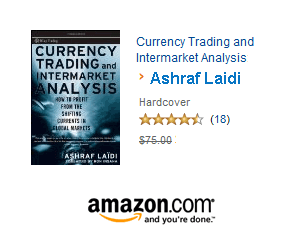Forum > View Topic
by Ashraf Laidi
Posted: Feb 22, 2010 5:00
Comments: 1558
Posted: Feb 22, 2010 5:00
Comments: 1558
Forum Topic:
JPY
Discuss JPY






http://bit.ly/aeOC32
Ashraf
If you wanted to keep your currency strong, that's a different ballgame, as BOJ can't print EUR or USD to buy JPY with.
I view this currency wars going on as a race to the bottom. The fastest printer wins. Smart people buys hard assets, even stocks, to get some protection from this devaluation game.
Ashraf
is this a great opportunity to sell $ against yen, don't get caught with your hand in the cookie jar!
Japan Ozawa's Forex, Funding Talk Would Face Major Tests
By ANDREW MONAHAN
Of DOW JONES NEWSWIRES
TOKYO -- Japan's shadow shogun, Ichiro Ozawa, wants to step into the limelight, but could his currency and fiscal policy proposals stand up to the glare?
Many investors are doubtful. Their concerns are mounting as the ruling-Democratic Party of Japan power-broker tries to oust Prime Minister Naoto Kan as party president in a Sept. 14 election in which only party members vote. Polls suggest the vote could go either way.
Ozawa has talked a tougher line than Kan on the need for currency market intervention to curb the soaring yen. He has also proposed unorthodox steps--issuing no-interest bonds and securitizing government assets-to fund spending increases he advocates.
The talk is bold, but would be difficult to turn into effective action. That means even if Ozawa becomes prime minister the yen could continue to strengthen, hurting the country's key export sector.
Ozawa has called for around Y2 trillion in fresh economic stimulus, which he himself admits may require more Japanese government bond issuance.
That in turn could pressure JGB yields higher, as investors demand a greater premium for lending money to a government increasingly at risk of a future fiscal crisis.
If Ozawa wins, it would likely be by a thin margin, leaving the DPJ fractured and the political landscape uncertain. Ozawa "would not be able to secure Y2 trillion" unless he could form a coalition to circumvent the split parliament, said Goldman Sachs economist Chiwoong Lee.
A Kan win could also lead to an early general election, as Ozawa and his supporters may threaten to bolt from the party.
"In either case, the likelihood of currency intervention would be reduced," increasing the chance of further yen gains, said Masafumi Yamamoto, chief foreign exchange strategist in Japan for Barclays Capital.
Even if Ozawa manages to win and take the reins of government, he would still be constrained by international expectations that Japan won't intervene.
"Japanese currency policy won't change even if a new Ozawa administration takes over, as he will face the same difficulties regarding intervention that Kan has," said Osamu Takashima, chief foreign exchange strategist at Citibank Japan.
Chief among the hurdles is an agreement among the Group of 20 wealthy and developing nations not to conduct competitive currency devaluations, Takashima said. Japan has joined the U.S. and other countries in criticizing China for keeping the yuan weak, making it even harder for Tokyo to justify any intervention, analysts say.
Still, any sharp drops in the dollar below Y80 could prod the government, whether led by Ozawa or Kan, to wade into currency markets, traders say. The dollar traded at Y84.05 late Friday in Tokyo.
But as Japan would be acting alone in any yen-selling campaign, without the help of the U.S. or other countries, the effects could be limited. The size of the foreign exchange market has increased dramatically since 2004, when Japan last conducted intervention, which even then had a limited effect. A recent survey from the Bank for International Settlements shows that trading between the dollar and yen has nearly doubled between 2004 and 2010.
"It's not easy to change market trends," given the market's massive size, said Kenichi Nishii, senior manager in the foreign exchange sales department at Bank of Tokyo-Mitsubishi UFJ. The example of the Swiss National Bank, which tried and failed to halt the Swiss franc's rise earlier this year, proves that point, Nishii said.
Ozawa's rhetoric on funding would also likely run into inconvenient market realities.
Issuing zero-coupon bonds, to keep interest rates from rising, would be meant to tap the savings of Japan's expanding elderly population as such bonds would be made exempt from inheritance tax. But as only 4% of the population is wealthy enough to be subject to such taxes, critics have assailed the proposal as likely to benefit only the rich.
The lost tax revenue would mean "net government revenue would be almost zero, so this would not contribute to fiscal consolidation," said Chotaro Morita, head of Japan fixed income at Barclays Capital in Japan.
Meanwhile, Ozawa's proposals to securitize some Y200 trillion government assets to create funds for policy spending likely would likely meet with a "very muted market environment for such products," said Takahira Ogawa, director for sovereign ratings at Standard & Poor's.
Other analysts also expressed doubt about Ozawa's funding ideas.
Proceeds from Ozawa's proposed programs "will not likely change the fundamental fiscal arithmetic that either stronger tax revenue performance or continued expenditure restraint, or both" are needed to reduce th